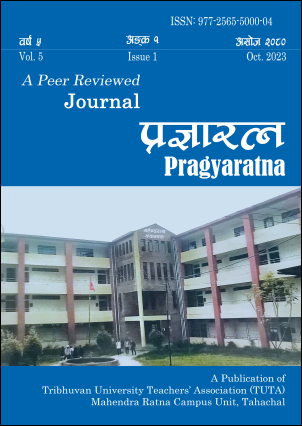Mathematics Achievement of Grade Eight Students in Lalitpur District
DOI:
https://doi.org/10.3126/pragyaratna.v5i1.59288Keywords:
Mathematics achievement, school level, Lalitpur districtAbstract
This study delves into the mathematics achievement of grade eight students of Godavari Nagar Palika in the Lalitpur district. Using a sample of 147 students currently enrolled in grade eight in the schools within the Nagara Palika, the research sought to elucidate the potential correlations between mathematical achievement and variables such as gender, age, ethnicity, religion, school type (private vs. public), parental marital status, and previous math scores. While most variables exhibited no significant influence on mathematics achievement, ethnicity emerged as a variable with notable impact. The study underscores the importance of understanding cultural and ethnic influences on academic performance, with potential implications for curriculum development and teaching methodologies in diverse settings. Variables including gender, age, and school type, showed no significant correlation with mathematical achievement at the p<0.05 level. However, ethnicity displayed a significant difference in students' mathematical performance. The research accentuates the importance of considering ethnic backgrounds when evaluating mathematical achievement, indicating a potential avenue for more tailored educational strategies in Lalitpur. Findings suggest educators should be cognizant of cultural and ethnic factors when devising teaching strategies, especially in areas with diverse student populations like Lalitpur.




